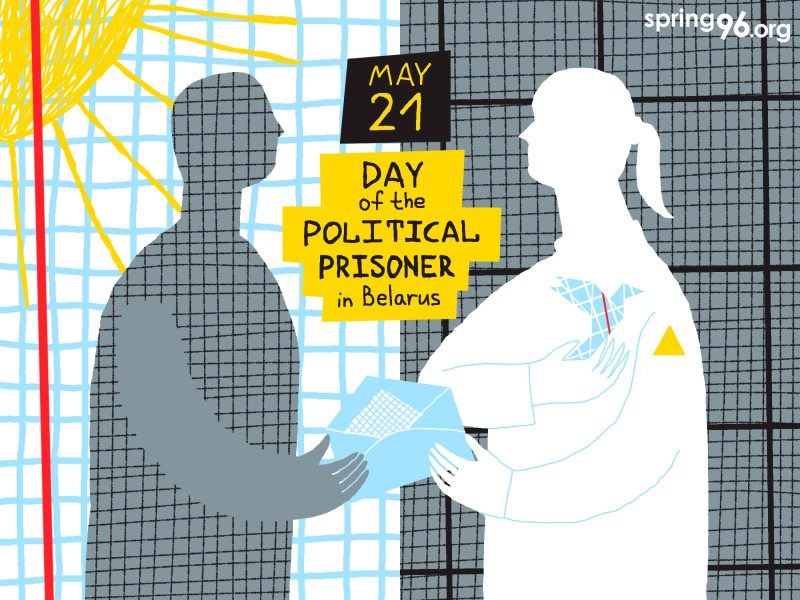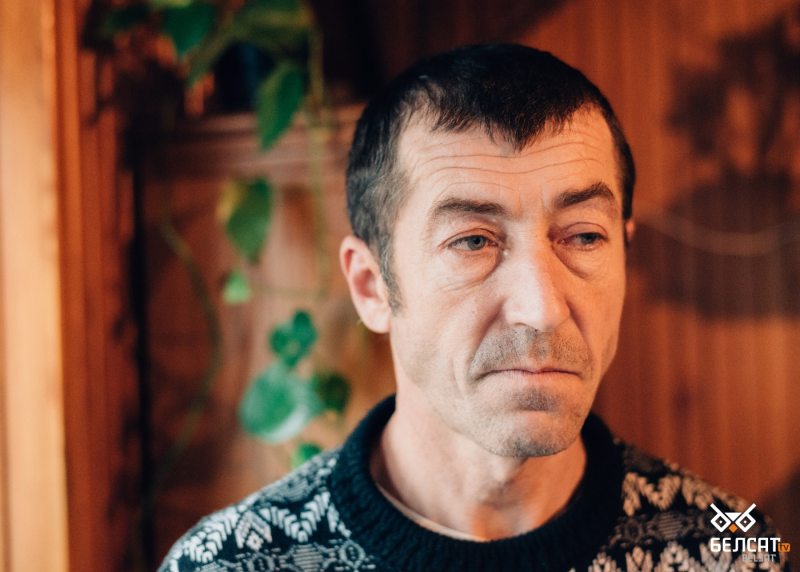Andrei Ashurak: “Bringing Vitold's case to an end is important for the whole society”
On May 21, 2021, Vitold Ashurak, an activist and a political prisoner, died in penal colony #17 in Škloŭ, Mahilioŭ region. The Investigative Committee stated that the political prisoner's death was not criminal and has not yet started criminal proceedings. The official death cause was cardiac arrest. However, about a dozen testimonies of former prisoners of penal colony #17 are already about the pressure and harsh conditions of Vitold’s detention and torture in the colony. Viasna talked to Andrei Ashurak, Vitold’s brother, about the testimonies of Vitold’s fellow prisoners, the investigation, and the restoration of justice.
For these two years, a criminal case regarding the death of Vitold in the penal colony has never been initiated. Andrei Ashurak’s communication with the investigator who conducted the inspection ended up in mid-December 2021:
“Now there are no official moves at all. What can they do in this direction, if they need to arrest those who committed it? They cannot open a criminal case against themselves. They are in the system.” Andrei adds that he could contact Belarus’ investigative bodies from Poland, but he sees no point in this.
“The best thing to do here now is to collect testimonies from people who were released from penal colony #17. In fact, this case has already been solved. We know the names of those who did it and brought Vitold to such a state that he died. But the word “died” is not the right word to use here, because he was killed. Owing to the ex-prisoners and human rights defenders, this case has already been solved.”
Indeed, more and more evidence is emerging about the conditions of Vitold’s detention and the pressure on him in the Škloŭ penal colony. Andrei says that he reads all the interviews with the former prisoners of the Škloŭ penal colony, although it is difficult for him:
“Of course, I read these testimonies... But reading such things is not easy, believe me. It’s all painful. These pictures flash before my eyes. But I have to read it all.”
Andrei Ashurak calls on the ex-prisoners who were released from penal colony #17 and know something about the circumstances of his brother’s death, to tell human rights defenders about them:
“We need all the details of how that happened. Bringing this case to an end is important for the whole society so that the principle of the inevitability of punishment is not circumvented. So that in the future everyone who serves in the Ministry of Internal Affairs, the army, or anywhere else, knows that if he does something like that against the law, he will be in jail anyway. Investigations should be done on all those killed and tortured.
Now another political prisoner, Mikalai Klimovich, died in a penal colony—didn’t you know that he had a heart disease?! Is this a conveyor belt?”—Andrei turns to the judges at the end.
At the same time, Andrei understands that the former prisoners of the Škloŭ penal colony are scared to share what they experienced there:
“These people are, of course, very frightened. One prisoner told me what they [the colony staff] were doing there—God forbid! So I am not surprised that these people are so frightened and afraid. After his and other former prisoners’ stories you read, even the Third Reich Nazis begin to seem nonpros... No normal person can do such things: beat, torture, oppress. What are you doing?! And after that, they go home to their wives and say that they are tired after work. Well, that’s what their work is like…”
Andrei is convinced that justice will be restored in Belarus and those responsible for his brother’s death will be held accountable:
“Once the regime changes, it will happen at a great speed, God bless. Vitold’s case is a personal matter for me, so I will find the guilty in any case, no matter where they went or where they hid. Because they did something that I’ll never forget. I’m sure this will end because the war has speeded it all up. We will always remember this, and we will not let them forget.”
The brother of the political prisoner Vitold Ashurak, who died in the penal colony, calls on all Belarusians to join the Day of the Political Prisoner in Belarus:
“I would like to see as many people as possible at rallies in different cities worldwide. A Political Prisoners’ Day... We have a Political Prisoners’ Day in Belarus—it sounds like nonsense! I feel sorry that this is the day of my brother’s death because I want him to live. But if it so happened that he was the first political prisoner who was directly killed in prison... And we have thousands of political prisoners. We need to remind the whole world that in Belarus, people are tortured and killed in prison just because they disagree with the authorities. We need to remember that thousands of people are behind bars under the threat of death and torture. And that we will find out what they do with people in prisons only after the person is released. Therefore, we need to constantly remind the world in every possible way about it and get people out of the prisons.”

May 21 is the Day of the Political prisoner in Belarus: show your solidarity and join the action in your city


















